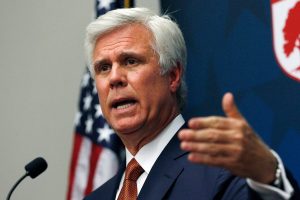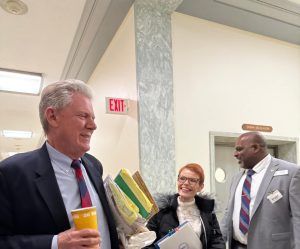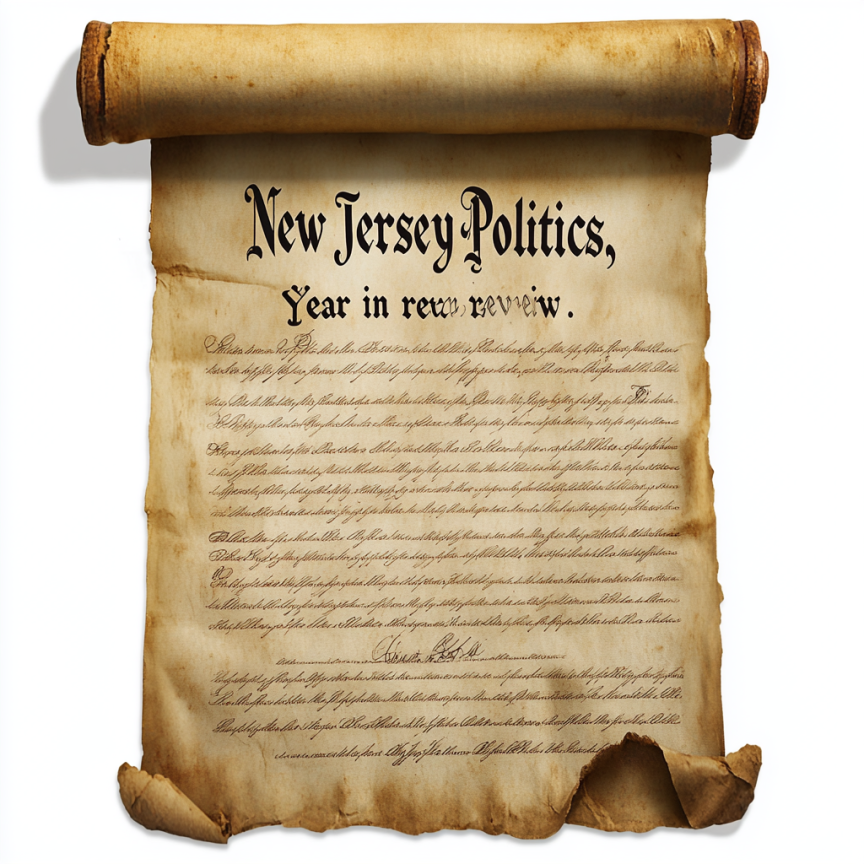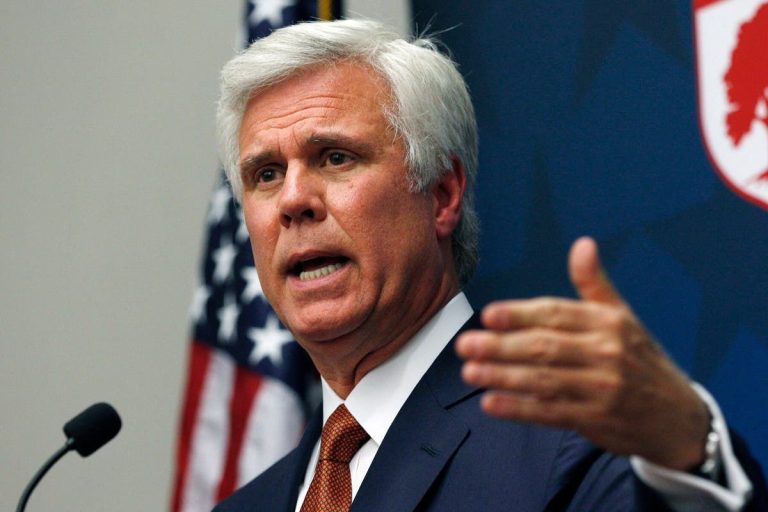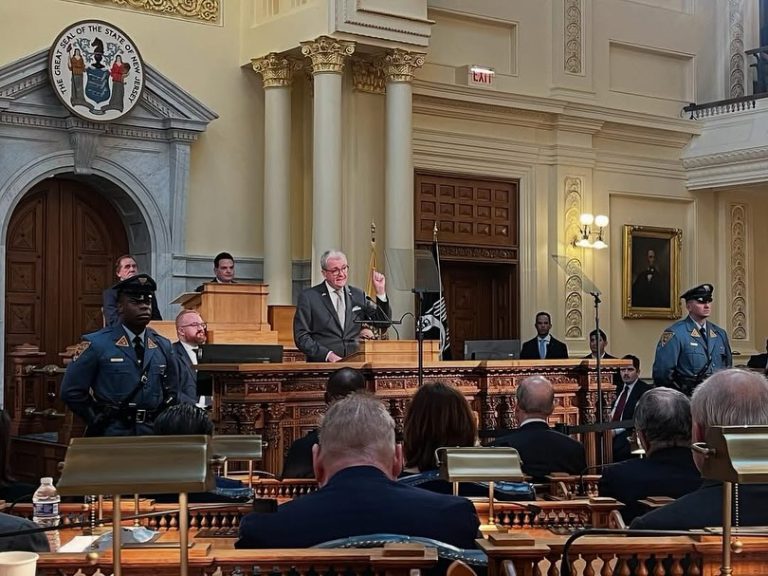The year 2024 was a political whirlwind for New Jersey, marked by high-profile scandals, shifting voter dynamics, and the early rumblings of a contentious gubernatorial race. From the dramatic fall of Senator Bob Menendez to the surprising resurgence of Republican enthusiasm, the Garden State served as a microcosm of national political turbulence. Amid these developments, Democrats grappled with a turnout problem, Republicans seized on newfound momentum, and the courts reshaped the electoral landscape, setting the stage for a transformative 2025. As New Jersey bid farewell to a year of upheaval, it became clear that the state’s political identity is in flux, with both opportunity and uncertainty on the horizon.
New Jersey voters faced a pivotal role in shaping national narratives, with the state delivering a narrower-than-expected victory for Vice President Kamala Harris over former President Donald Trump, 52-46%. While still blue, this result marked the closest presidential margin in decades, signaling voter dissatisfaction and low turnout among Democratic constituencies. Trump’s campaign reinvigorated the NJ GOP, laying groundwork for future challenges in traditionally Democratic strongholds.
U.S. Senator Bob Menendez’s corruption trial dominated headlines and led to his eventual conviction on multiple charges, including bribery and acting as a foreign agent. Menendez’s fall from grace was swift and catastrophic, leaving New Jersey Democrats scrambling to salvage their reputation. Congressman Andy Kim capitalized on this chaos, not only challenging Menendez in the primary but successfully defeating him and winning the general election for the U.S. Senate seat.
Kim’s rise marked a decisive blow to entrenched political machines and the long-standing influence of Hudson County Democrats, signaling a new era of grassroots-driven Democratic politics.
With the 2025 gubernatorial race looming, both parties began laying the groundwork for a competitive contest. On the Republican side, former Assemblyman Jack Ciattarelli declared his candidacy, leveraging Trump’s national success to energize conservative voters. Meanwhile, Democrats faced a fractured field, with Congresswoman Mikie Sherrill emerging as a frontrunner alongside Newark Mayor Ras Baraka and former Senate President Steve Sweeney.
Adding to the intrigue, the state’s court system struck down New Jersey’s controversial “county line” ballot design, which historically benefited establishment candidates. The ruling, spurred by Andy Kim’s lawsuit, fundamentally reshaped the primary process and gave outsider candidates a fairer chance.
First Lady Tammy Murphy’s campaign for U.S. Senate, launched in the wake of Menendez’s scandal, stumbled amid accusations of nepotism and establishment favoritism. The campaign’s reliance on party machinery backfired after Judge Zahid Quraishi’s landmark ruling against the county line. Murphy’s candidacy became a cautionary tale about the perils of overconfidence in a changing political landscape.
Low Democratic turnout haunted the party throughout 2024. From Harris’s narrower-than-expected win to underwhelming results in congressional and local races, the year underscored a growing enthusiasm gap. Analysts pointed to economic struggles, inflation, and frustration with party leadership as key drivers of discontent. The Democrats’ inability to galvanize their base left them vulnerable heading into 2025.
Buoyed by Trump’s strong performance, New Jersey Republicans achieved gains at the local and county levels. Congressman Jeff Van Drew, a former Democrat turned Trump ally, became a key figure in rallying Republican voters. While the GOP remains a minority party in New Jersey, their 2024 successes highlighted vulnerabilities in Democratic strongholds, particularly in suburban and rural areas.
While national politics dominated headlines, New Jersey’s legislature tackled several significant issues:
- Reproductive Rights: In response to threats to abortion access nationwide, New Jersey passed new protections for reproductive health care, ensuring the state remains a safe haven for those seeking care.
- Gun Control: Following national trends, New Jersey enacted stricter gun laws, including measures to address ghost guns and expanded background checks.
- Affordable Housing: The Murphy administration prioritized housing initiatives, though critics argued progress remained slow, particularly in addressing urban displacement and suburban resistance.
2024 saw the loss of several prominent figures in New Jersey politics, including Congressman Bill Pascrell and Newark City Council President Mildred Crump. Their passing marked the end of eras defined by tireless public service and dedication to their communities.
As the year concluded, New Jersey’s political future hung in the balance. The Democratic Party faced significant challenges in uniting a fractured base and addressing voter apathy. Meanwhile, Republicans sought to capitalize on their momentum and flip Drumthwacket in 2025.
The gubernatorial race promises to be one of the most competitive in recent memory, with both parties eager to define the next chapter of New Jersey’s political story. As 2024 reminded us, nothing in the Garden State is ever predictable.
This year was a reminder of New Jersey’s complexity—a state where national trends, entrenched local power, and grassroots movements collide to shape a political identity uniquely its own. Stay tuned for what’s next in the Garden State.







